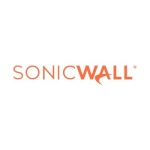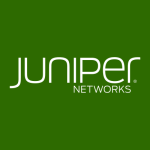What is our primary use case?
I work in IT at a German insurance company, and I studied computer science. I also work in the network sector, so I know a lot about network solutions. I work with VPN solutions, Fortinet, and other products. For me, pfSense is a private home solution for my family. It's not the solution in my company.
I use pfSense as a firewall appliance, and the function is very good. But I think it's for users with more experience. It's not a solution for beginners.
If you are a professional, it's not difficult to add features to pfSense and configure them. But it is difficult if you are not.
I utilize the core features. I have pfBlockerNG, SquidGuard, OpenSSL, and WireGuard. So, these are the core features I need.
How has it helped my organization?
The core benefits are that I can virtualize it with platforms like Proxmox or VMware, and I can buy third-party appliances. And Netgate offers a lot of hardware possibilities.
pfSense offers a lot of things that help to prevent data loss and intrusion, protect telemetry information, and so on.
pfSense gives a single pane of glass management. But for me, it's not a problem because I have one appliance, but I think if you manage a lot of appliances, it could be better. It's important to be able to centralize management if I have 10 or 20 appliances.
I use pfSense Plus, it's called the "Zero-to-Ping" license [TAC Lite]. It's a very good solution, but it's a bit too expensive for private use. pfSense Plus is very good, but, for example, if I want to add another pfSense appliance for a cluster, it requires two licenses. For private use, if I want two licenses, it's very expensive.
pfSense Plus provides features to minimize downtime. One of the key features is ZFS. It's the file system. ZFS is very important for backups. I can make snapshots, and that is very good to make backups.
I am satisfied with the visibility that is provided by pfSense Plus. It is very good and optimizes performance because the hardware acceleration is very good for IPsec, SSL VPN, OpenSSL, and so on. This is very good support from pfSense.
What is most valuable?
The best feature is a function called pfBlockerNG. In pfSense, you can whitelist and blacklists for IP addresses or dangerous DNS sites. The top feature is the VPN. It's a very good SD-WAN solution and a very good VPN engine. It supports a lot of VPN techniques; it supports IPsec, SSL VPN, and WireGuard. It's the core feature of pfSense.
The flexibility is very good; we have a lot of possibilities. You can connect it with different WAN connections, whether you have a cable provider or fiber.
The feature list is good. For me, it's more important that we have fewer patches and better stability compared to OPNsense. I think OPNsense is too big. They support a lot of things, but pfSense is better. I think pfSense is better for stability.
What needs improvement?
The only thing that could be better is the hardware compatibility for LTE devices. This is a bit tricky for me; I wish the hardware compatibility were better for LTE devices.
I wish the FQ_CODEL limiters were improved. They're very good, but the FQ_PIE limiters don't work well. FQ_PIE limiters are important for cable modem connections. In Germany, we have a lot of cable providers for these interfaces, and the FQ_PIE limiters don't work well in pfSense.
For how long have I used the solution?
I have been using it for eight to ten years. It has been a very long time. pfSense is very popular in Germany.
I use the latest pfSense Plus version.
What do I think about the stability of the solution?
The stability is very good.
What do I think about the scalability of the solution?
I use it for my family, for maybe 20 or 30 devices. It's not a big environment.
How are customer service and support?
I utilize the pfSense forum and the community forum, and it's okay for me.
Which solution did I use previously and why did I switch?
My preference in comparison with OPNsense is pfSense. I think it is better; it is stable.
The difference is that OPNsense has more features, but also has more bugs.
For me, pfSense is stable. It's better for my use case.
How was the initial setup?
The deployment process is very good. For example, I can set up a new appliance and boot directly from a config file. This is very good.
It's very simple. I download new images, and during the boot process, if you make an image, you have a directory. In the directory, you make the config file, and then you can directly boot with the setup. You can boot a finished version. It's a good thing.
I use it on-premises. The on-prem version is very good. The software is good.
Maintenance depends on the features you use. If you have a proxy server with SSL introspection, sometimes it creates a small firewall size. If you have an easy firewall setup, then it's not so complicated. It depends on your environment and feature settings.
What about the implementation team?
I did the deployment myself without the help of third parties or anything like that. It's very simple. I have enough skills because I studied computer science and work in the network sector. It's not a problem for me.
It took me ten minutes to deploy it.
What was our ROI?
The ROI is good. pfSense is a very good solution, not only for home use, but also for middle-sized or larger companies.
What's my experience with pricing, setup cost, and licensing?
In comparison with pfSense CE (Community Edition), pfSense Plus is a little bit too expensive. The pricing is a little bit high for private users.
With the inclusion of the firewall, VPN, and router functionalities, the total cost of ownership of the pfSense Plus solution is very good because pfSense Plus has a lot of features. For the VPN features, it is good for the total cost of ownership.
What other advice do I have?
I can recommend it if you are a professional or if you know what a firewall is.
It is a very good solution for the home sector, for companies, and for larger companies. I would recommend it to a lot of companies.
Overall, I would rate it an eight out of ten.
Which deployment model are you using for this solution?
On-premises
Disclosure: PeerSpot contacted the reviewer to collect the review and to validate authenticity. The reviewer was referred by the vendor, but the review is not subject to editing or approval by the vendor.

















